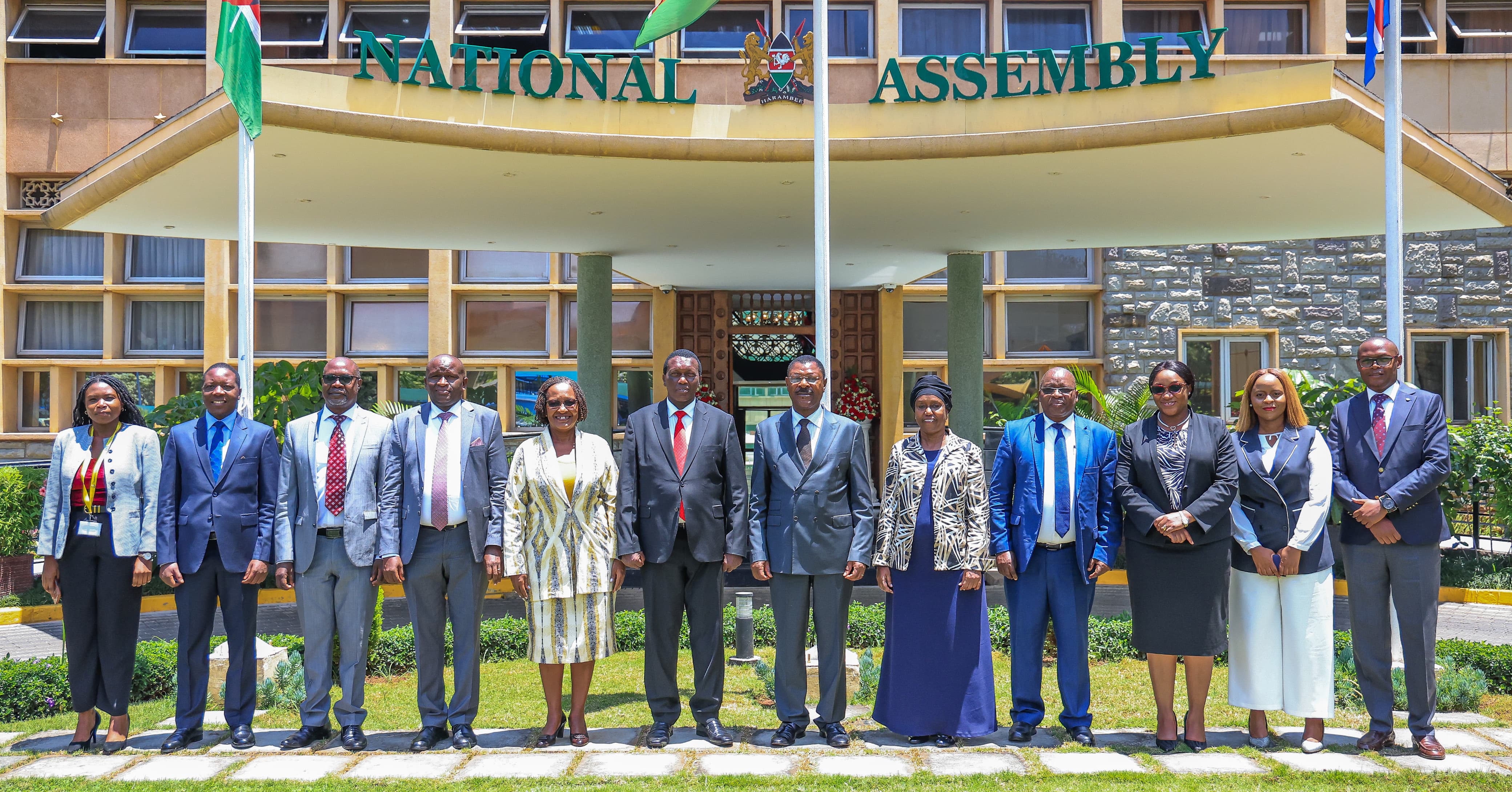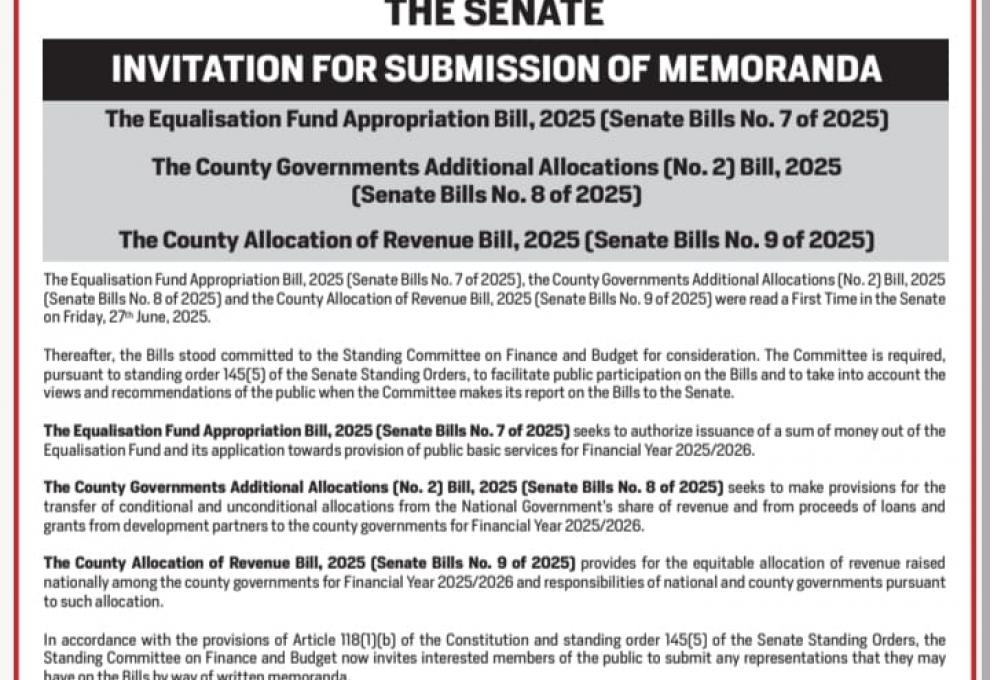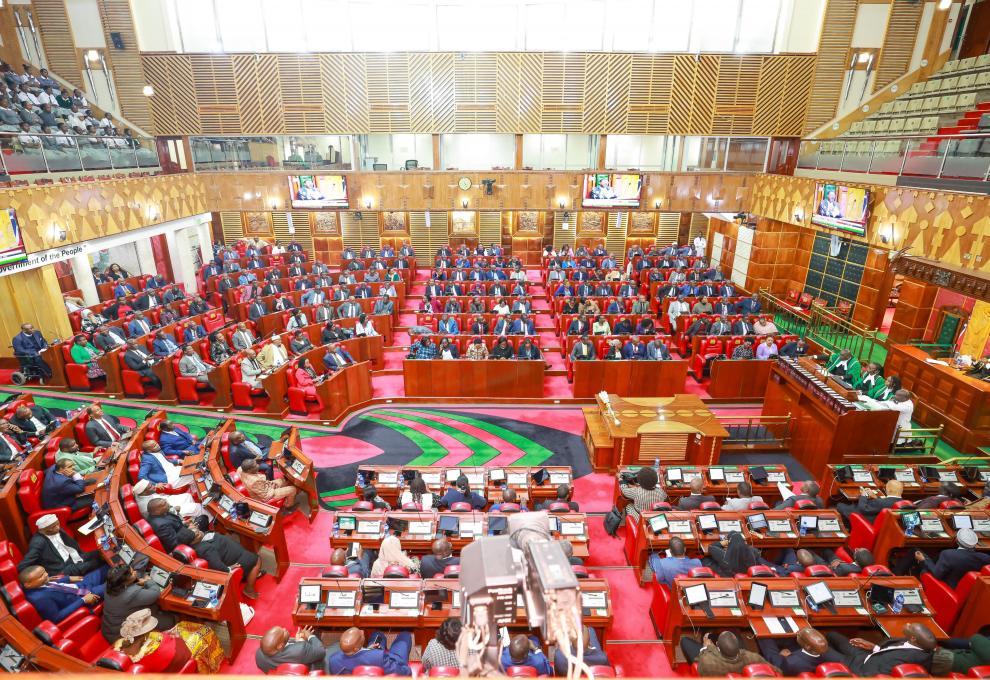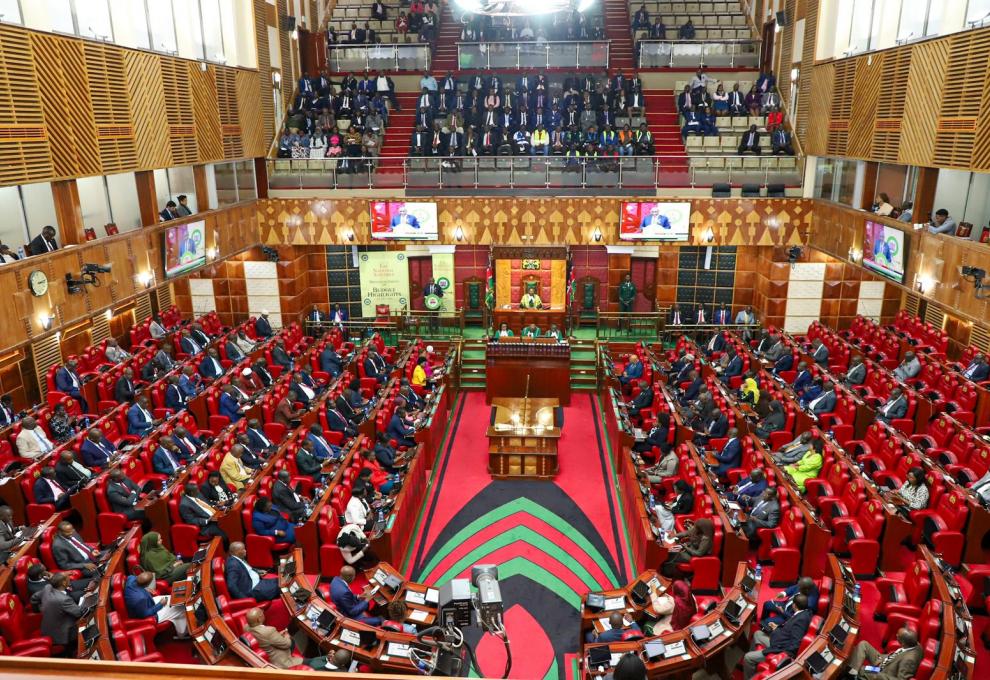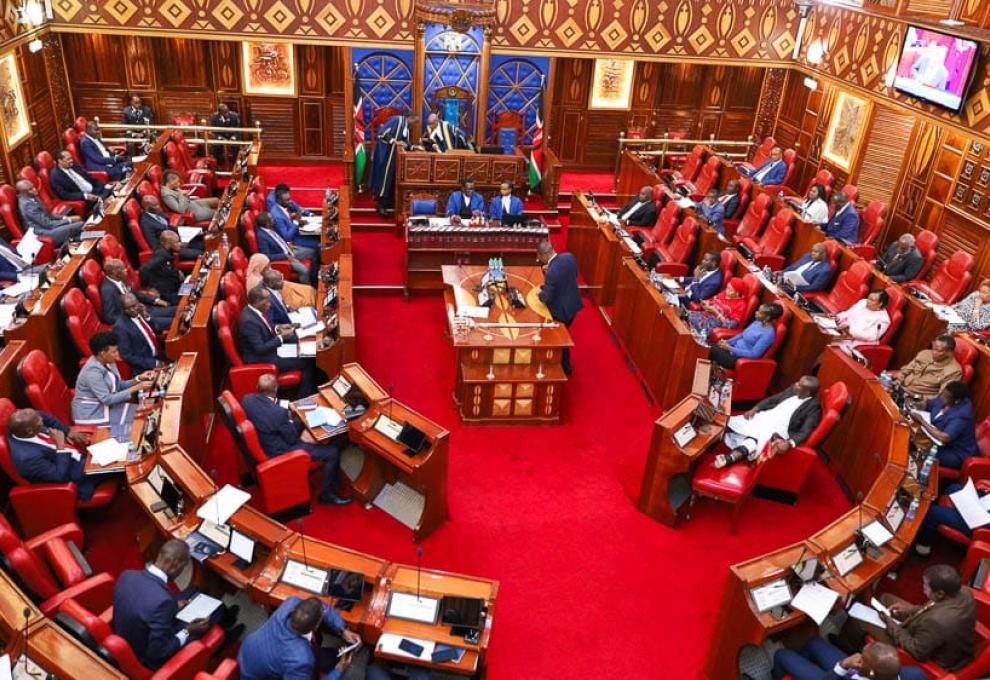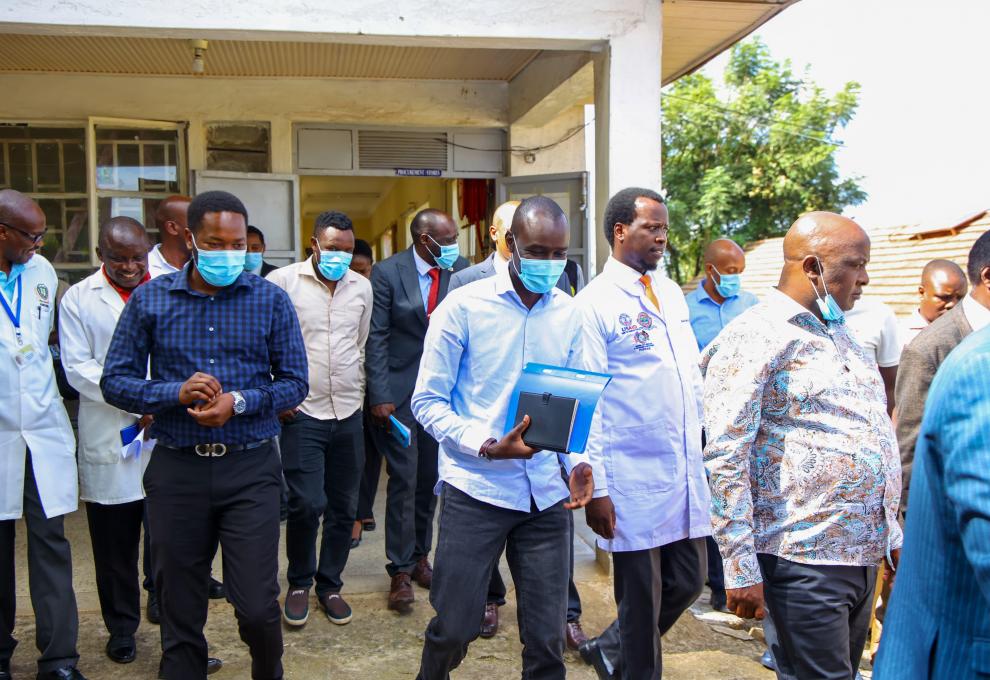𝐒𝐏𝐄𝐀𝐊𝐄𝐑 𝐖𝐄𝐓𝐀𝐍𝐆’𝐔𝐋𝐀 𝐇𝐎𝐒𝐓𝐒 𝐊𝐍𝐂𝐇𝐑 𝐑𝐄𝐏𝐒, 𝐂𝐇𝐀𝐋𝐋𝐄𝐍𝐆𝐄𝐒 𝐓𝐇𝐄𝐌 𝐓𝐎 𝐈𝐍𝐓𝐄𝐍𝐒𝐈𝐅𝐘 𝐇𝐔𝐌𝐀𝐍 𝐑𝐈𝐆𝐇𝐓𝐒 𝐕𝐈𝐎𝐋𝐀𝐓𝐈𝐎𝐍𝐒 𝐖𝐀𝐓𝐂𝐇
National Assembly Speaker Rt. (Dr.) Hon. Moses Wetang’ula has assured the Kenya National Commission on Human Rights (KNCHR) of Parliament’s support in safeguarding its Constitutional mandate, especially amid growing concerns over budgetary constraints and institutional sustainability.
The Speaker was speaking on Wednesday during a courtesy call by KNCHR Vice Chairperson Dr. Raymond Nyeris, who is currently serving in an acting capacity following the passing of former Chairperson Roseline Odede.
Dr. Nyeris led a delegation of the Commission to brief the Speaker on KNCHR's ongoing engagements with Parliament, international obligations, legislative advisories, and critical financial and operational challenges threatening the Commission’s effectiveness.
“The Commission on Human Rights is a Constitutional body under Article 59. We are proud to enjoy an A-status globally and to represent Kenya at the UN Human Rights Council. We must guard this status jealously,” said Dr. Nyeris.
He emphasized that KNCHR's global standing was at risk due to inadequate and unreliable funding.
With re-accreditation scheduled within the next year, Dr. Nyeris noted that the Commission requires demonstrable financial independence to retain its A-status under the Global Alliance of National Human Rights Institutions (GANHRI).
The Speaker commended the Commission’s efforts and affirmed Parliament’s role in defending constitutional bodies.
“You represent not just Kenya but Africa on the international human rights platform. We must not allow lack of funding to erode that hard-earned credibility,” said Wetang’ula.
During the briefing, Dr. Nyeris highlighted several legislative milestones achieved through close collaboration with the National Assembly, including contributions to the Mental Health Amendment Act, Persons with Disabilities Bill (2023), Sexual Offenses Amendment Bill (2024), and the draft Intersex Persons Bill.
He also cited the Commission's advocacy behind the Children’s Act 2022, which for the first time formally recognizes intersex children in Kenya.
Additionally, KNCHR has provided independent reports to Parliament on national tragedies such as the Shakahola massacre and enforced disappearances, demonstrating its watchdog role in monitoring government accountability and promoting human rights.
However, Dr. Nyeris lamented that the Commission receives only 70% of its budget from the government and lacks financial support for core functions such as investigations, monitoring detention centers, public awareness campaigns, and implementing the Prevention of Torture Act (2017), a responsibility delegated by Parliament.
“Despite being tasked with national mandates, we are currently only operational in nine counties, with five full offices. Ideally, we should be present in all 47 counties. The Kenyan public deserves timely and equal access to our services,” he noted.
The Speaker acknowledged the challenges and encouraged the Commission to forward its budgetary proposals directly to his office during the current budget cycle.
“We will engage the Justice and Legal Affairs Committee and Treasury to push for improved funding. Submit your documents, and I will personally follow up,” Wetang’ula said.
On international compliance, KNCHR confirmed it had worked closely with the Office of the Attorney General to push for the ratification of the African Protocol on the Rights of Persons with Disabilities and the Protocol on the Rights of Older Persons.
It also called on Parliament to expedite pending Bills on Death Penalty reform, representation of marginalized groups, and the Preservation of Human Dignity and Economic and Social Rights Bill.
The Commission further urged Parliament to review outdated policy frameworks, including the Sessional Paper No. 3 of 2014 on Human Rights, whose validity has lapsed.
Dr. Nyeris proposed enhanced collaboration with Members of Parliament to promote human rights awareness at the grassroots.
Speaker Wetang’ula reaffirmed his commitment to supporting KNCHR and acknowledged the broader role the Commission plays in protecting vulnerable groups.
He urged the Commission to remain vigilant, particularly in addressing silent violations such as child marriages, elderly persons rights abuse, and the dispossession of widows.



